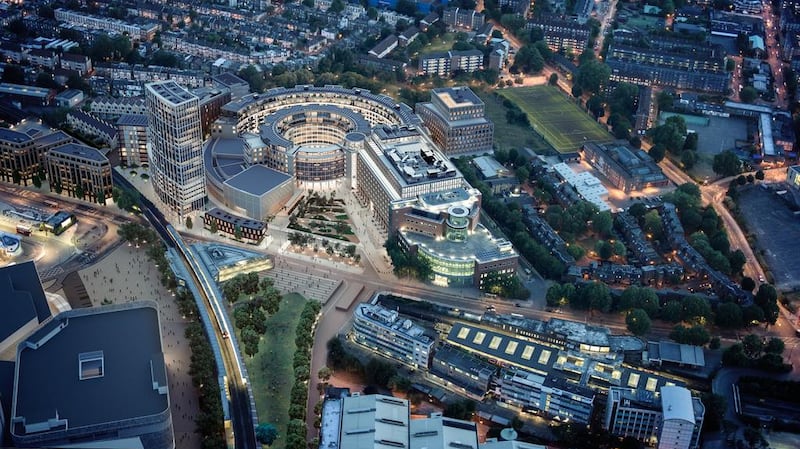LONDON // Studio lights used to blaze around the clock at Television Centre in West London, where some of the best-known BBC programmes were made.
And even though the building is being transformed into flats and offices, the developer, Stanhope, wants a “lights-on policy” to remain in place.
Stanhope, backed by the Japanese property company Mitsui Fudosan, bought the much-loved, 14-acre TV centre site for £200 million in 2012 (then about Dh1.17 billion).
It plans to build new blocks, with the entire project to comprise 950 residential units. Prices range from £500,000 for a studio to as much as £7m for a top-spec penthouse, while there will also be “affordable” home options for eligible buyers.
Amid a growing backlash against the number of London properties being bought up by foreign investors and left largely unoccupied, Stanhope says it is making efforts to ensure that Television Centre is lived in – as buzzing as it used to be.
Alistair Shaw, the managing director of the Television Centre redevelopment, said “block sales” of units at the development had been banned to boost occupancy.
“We’re keen to have a lights-on policy,” he said in an interview in a show apartment bordering the development. “We’ve always wanted to get people to live here.”
This is an emotive topic in the UK. It emerged last month that the mayor of London plans to launch an inquiry into the surge in homes being bought by overseas investors, amid concern over property prices and the number of units left unoccupied.
That is not a problem that Mr Shaw expects at Television Centre. Stanhope exhibited at the recent Cityscape Global property show in Dubai, where it looked to promote Television Centre to Middle East investors – as a place for people to live.
“We’re doing no block sales to anybody. If you do block [sales], which others do, you lose control a bit of who’s going to live there, their rationale for living there,” he said.
“Our message in the Middle East will be, ‘come and live here, use it to live and enjoy it’. We do have rental investors here and that’s fine because [units will still] be occupied. But occupation is what we are looking for. Because that’s the buzz of the place – the people make the place. So we have to invite Middle Eastern buyers to come and live here, or get others to live here.”
Another reason that the developer is not doing bulk sales of units in the development is the way it was financed, Mr Shaw said. “We were in a very fortunate position, in that the way Mitsui Fudosan has financed this project, there was no banking requirements to do pre-sales. So it gives us more time to make our case for occupation.”
business@thenational.ae
Follow The National's Business section on Twitter






